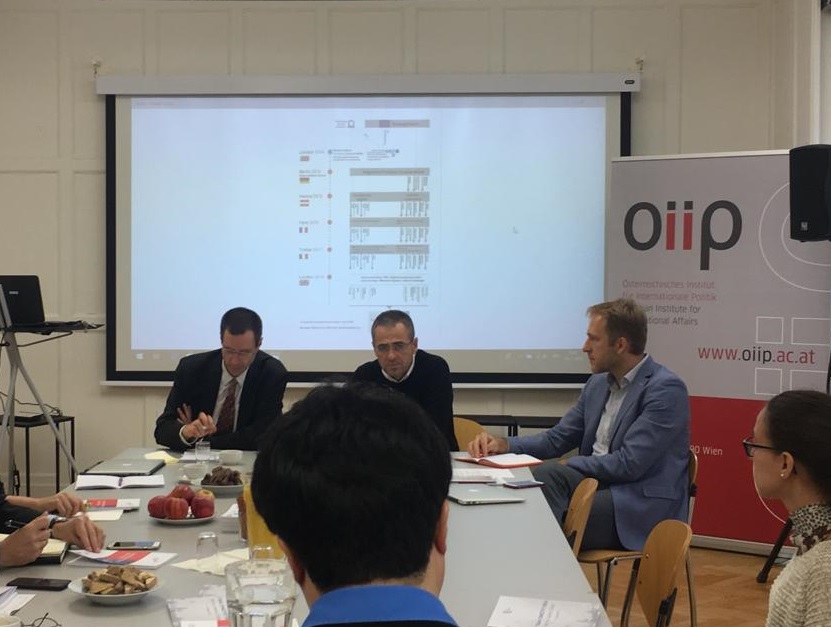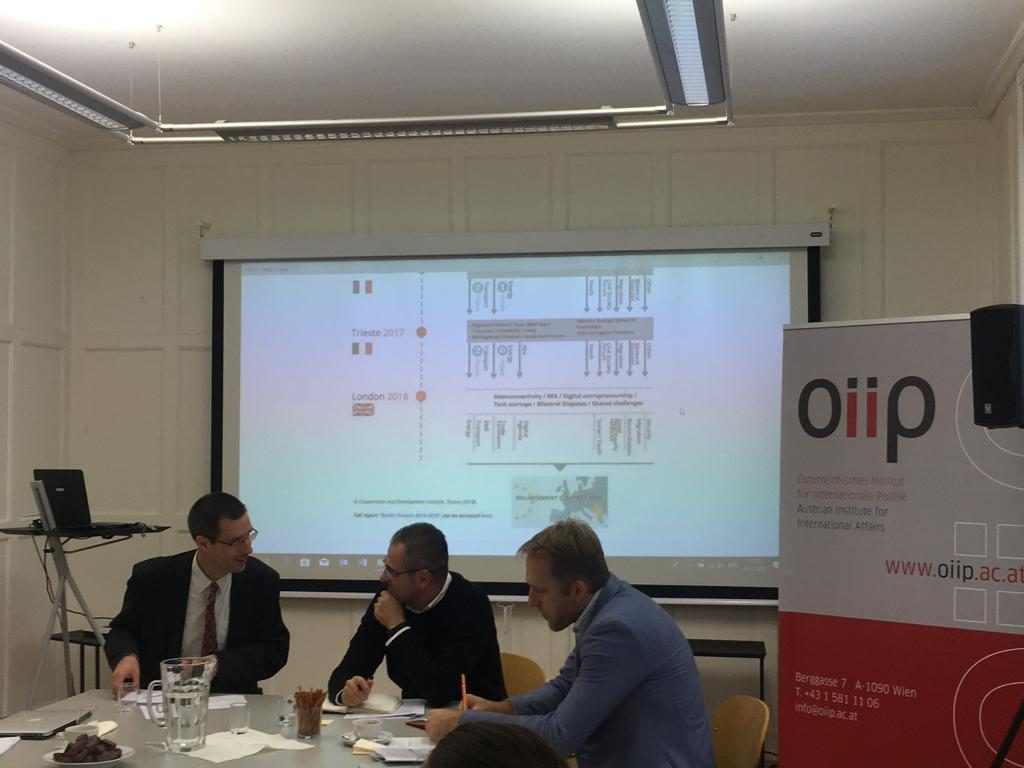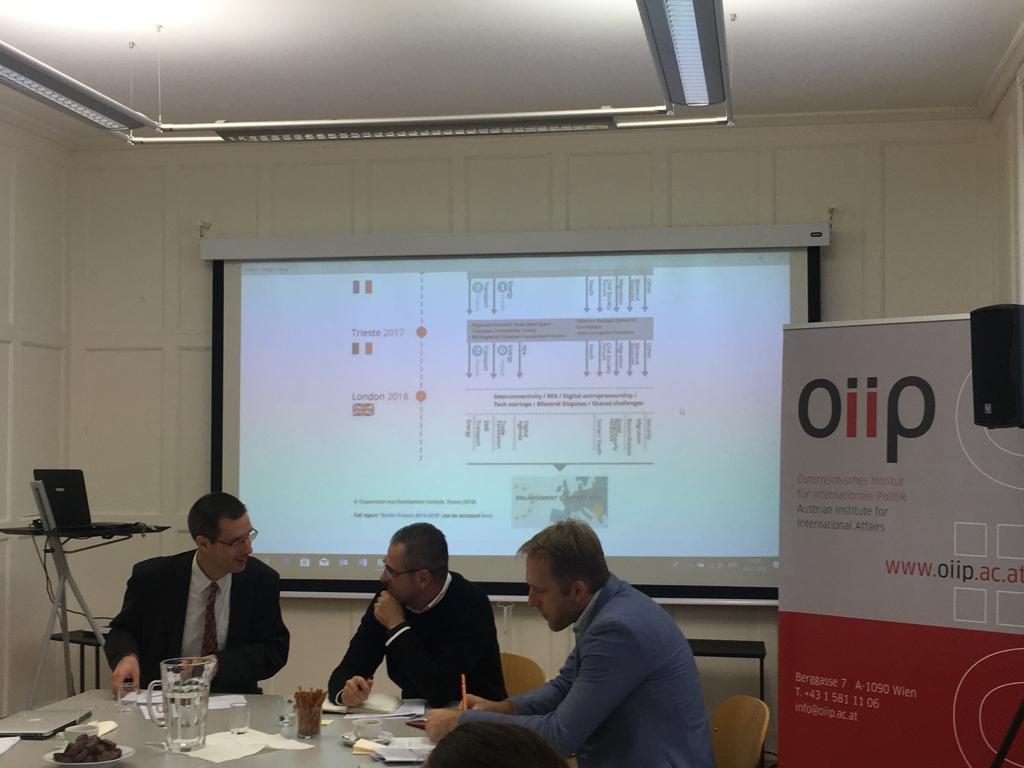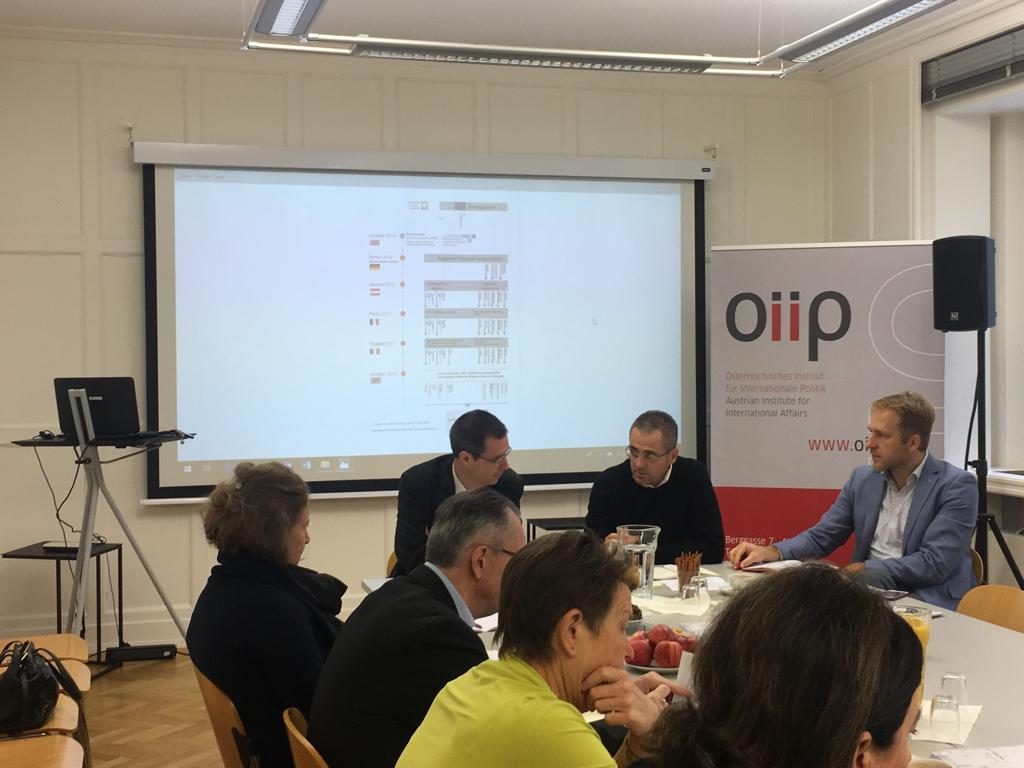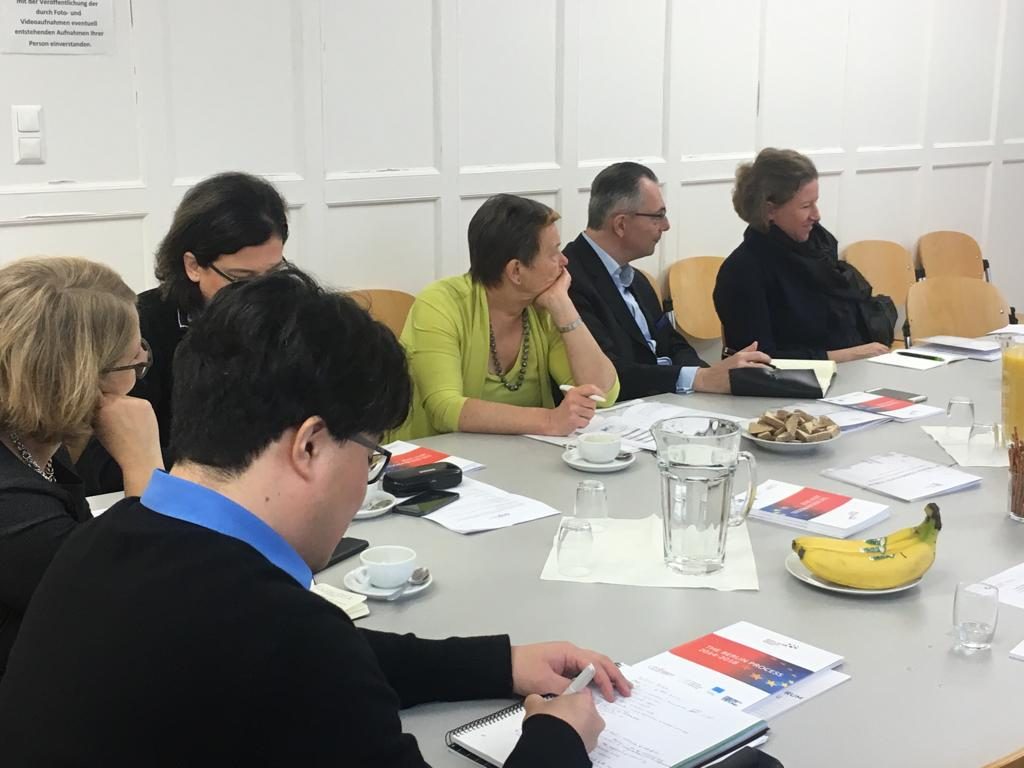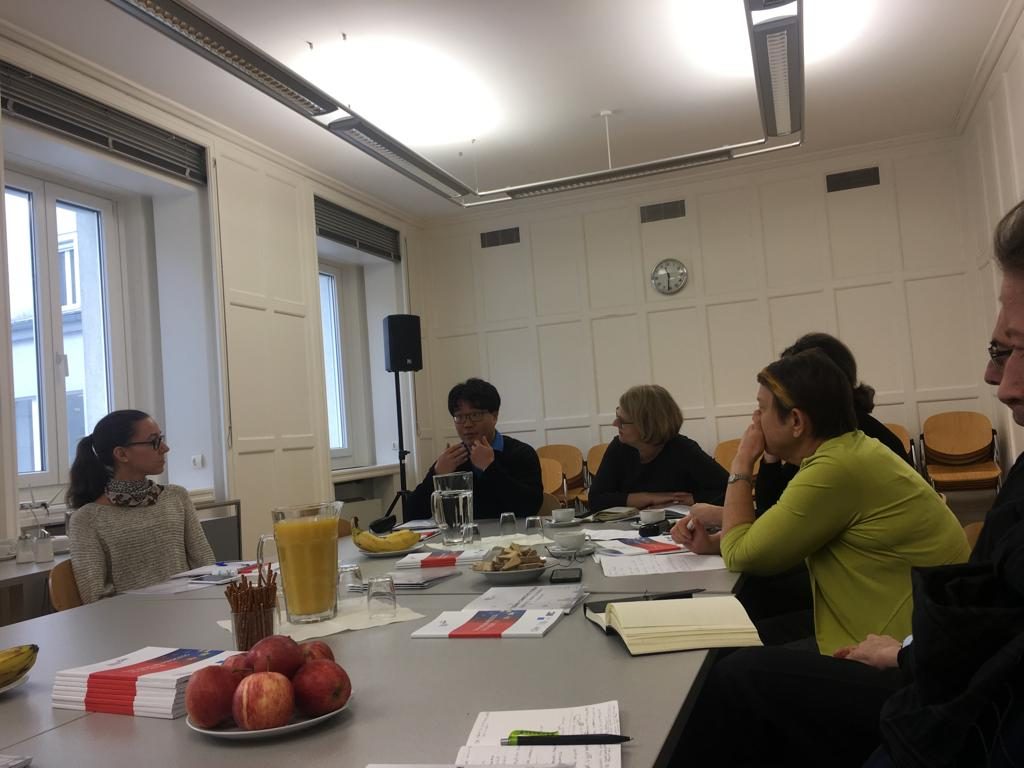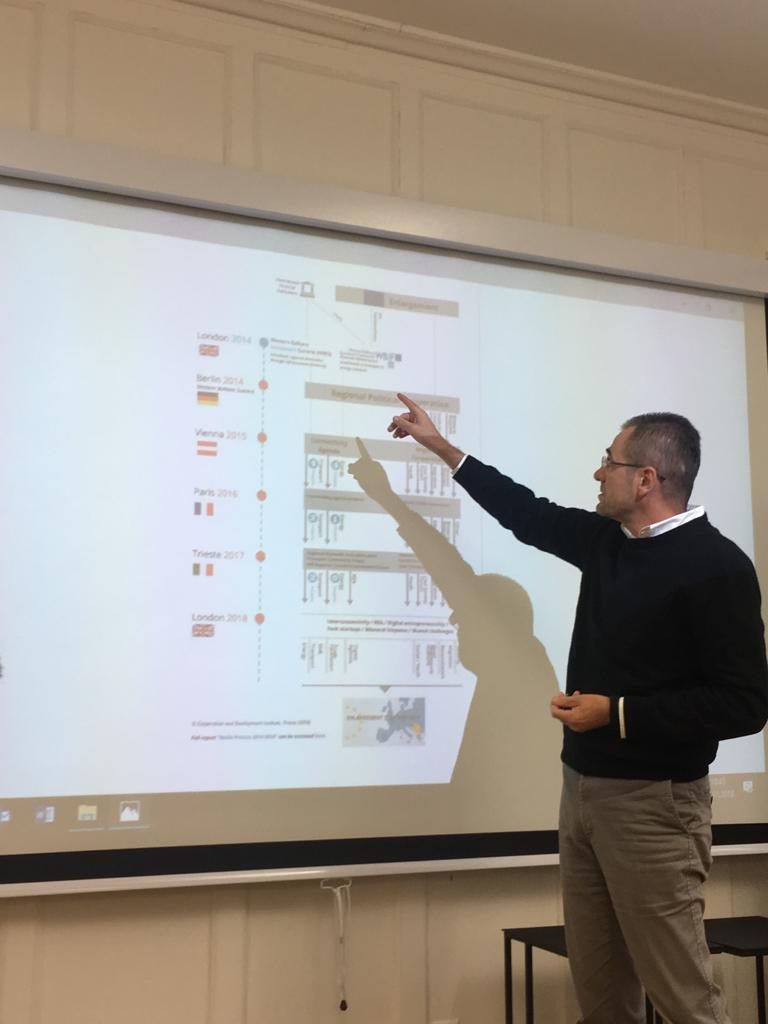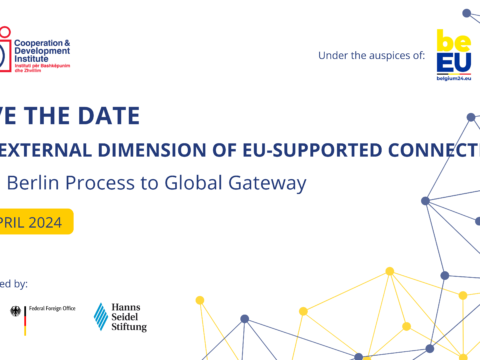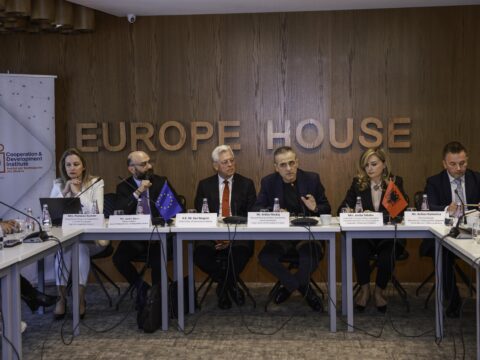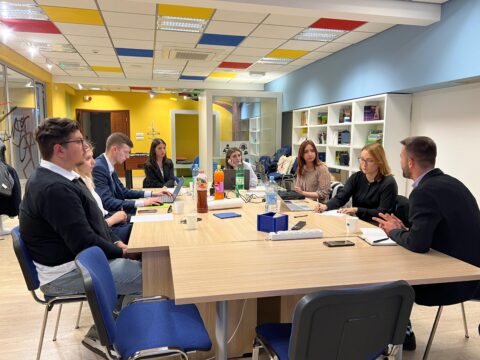On 19 November 2018, Cooperation and Development Institute in partnership with Austrian Institute for International Affairs (OIIP) and Austrian Ministry of Foreign Affairs organized in Vienna the meeting “Connecting Western Balkans: Berlin process after the 2019 Poznan Summit – The importance of being Well Connected”. The event was supported by the Austrian Development Agency, Tirana Office. The aim of this meeting was to bring to Vienna public of selected stakeholders from academia, researchers, officials interested in connectivity and enlargement, diplomats, interested journalists and students the topics of Connectivity and Enlargement in the “troubled” year 2019.
The discussion was opened by the Mr. Vedran Dzihic from OIIP who introduced the participants with topics of the debate: Achievements and challenges of Berlin process; Progress of connectivity agenda projects; Bilateral disputes and spirit of regional cooperation and Future of EU enlargement. Mr. Ardian Hackaj from Cooperation and Development Institute made a brief description of the Berlin Process and presented what Berlin Process aimed to achieve and what has been achieved so far in the frame of regional cooperation and connectivity agenda, the two pillars of the process. He introduced the participants with the main topics of the upcoming Poznan Summit in 2019 and argued that the Berlin Process provided for a mechanism of enhanced policy engagement and institutional cooperation between European Union and the Western Balkans Countries. Mr. Thomas Muehlmann from the Austrian Ministry of Foreign Affairs stated that “current Enlargement benchmark and chapters are relevant for countries as Serbia and Montenegro, but are not enough for Albania and Montenegro which have not yet opened the negotiations. European Union must use inclusiveness meetings and discussions in order to include them in policy issues. In this aim, Austria promotes and enhances policies related to security and migration as a pragmatic way to encourage institutional involvement and participation of these countries”
During the discussion, it was highlighted that the impact of the Berlin Process can be observed at the European Union’s Enlargement Strategy for the Western Balkans and especially in its six flagship initiatives. Furthermore, the participants discussed on how EU-centered connectivity can contribute to increase the impact and the visibility of EU action in WB6 and how it can facilitate the transmission of norms, values, standards of governance to Balkan fragile institutions. The participants had the opportunity to know more on Tirana Connectivity Forum 2018 programme and discussions held within this Forum. They evaluated the event as an important fora to discuss connectivity needs, cooperation in the region and explore ways to further encourage and support WB6 to be anchored to EU.



